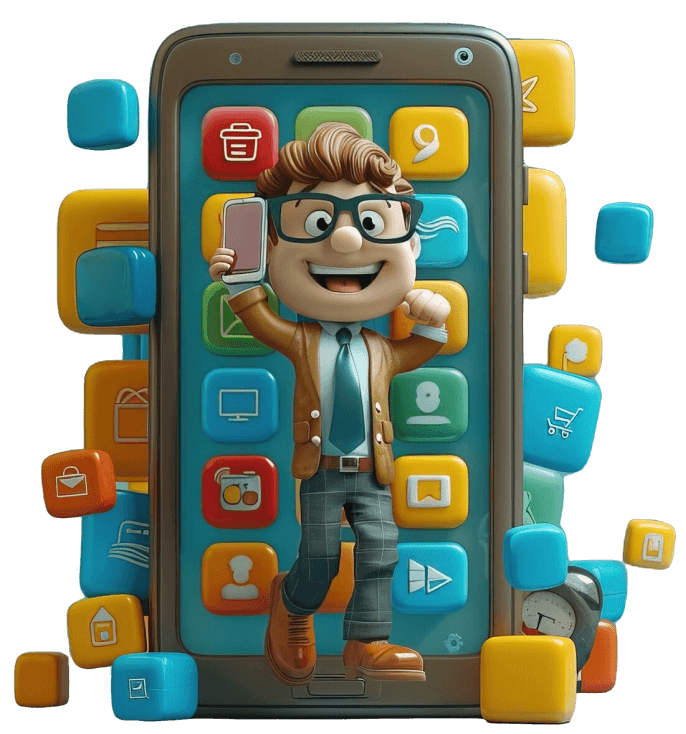Introduction
Have you ever wanted to see how a paper writer by WritePaperForMe might shape a student's success? They often help learners with assignments, but many people forget that new technology skills for students can be even more important. As digital tools keep changing, schools adapt to prepare young minds for jobs that don't yet exist. These changes raise a big question: which skills will help tomorrow's workers stand out?
This article explores the best digital skills to learn. It also answers what skill is most important for a student learning to read in a modern setting. Each section will explain why these abilities matter. By gaining the right skills of it student life, young people boost their academic results and future careers. In the end, the aim is to help students feel confident and ready for rapid tech changes.
Why Technology Skills Matter
Technology continues to change fast. That makes it key for students to keep pace with new trends. Many jobs now need advanced computer familiarity, such as using online platforms and digital tools. Knowing these tools helps young people stand out. In everyday classwork, simple tasks like creating slide presentations or typing up papers are now essential.
Students who have strong technology skills for students can better handle research tasks, group projects, and online tests. Also, many schools use digital platforms for homework, so basic computer literacy is a must. By learning how to search for information online, learners can save time and find accurate answers. This skill also helps with projects that require data collection and analysis.
When students grow these abilities, they can adapt to new gadgets or apps without stress. Over time, these skills shape their mindset, making them more flexible and open to new ideas.
Building a Lifelong Reading Habit
Reading is one of the best ways to learn new ideas. In today's digital world, however, many people wonder what skill is most important for a student learning to read when so many distractions exist. The first step is to focus on comprehension tools that work well both online and in print.
Some students like e-books, while others prefer paper. Educators often suggest reading across devices, so learners can consume text on phones or tablets. This flexibility supports different styles and keeps reading fun. Plus, digital reading also allows immediate dictionary lookups, which helps clarify new terms.
Students who read a variety of online articles gain exposure to fresh topics. This strengthens vocabulary and critical thinking. It also builds the habit of exploring reliable websites. When these young minds become used to reading daily, they pick up data faster. That builds a foundation for all other digital skills.
Understanding Digital Literacy
Being online doesn't mean someone is fully tech-savvy. True digital literacy means that a person can use, evaluate, and share information. This includes checking if sources are accurate and deciding which sites are trustworthy. It's part of the best digital skills to learn, mainly because it stops misinformation.
For example, a student might come across an article on social media. Digital literacy skills allow them to confirm if it comes from a real source or a fake one. These abilities might seem minor, but they are valuable for academic work and real-world decisions.
Also, students who develop digital literacy often become safer web users. They avoid sharing private info on suspicious sites. They learn how to manage online privacy settings. By being responsible on the internet, teens protect themselves and others. Over time, good digital literacy habits lead to stronger results in school projects and personal interests.
Essential Communication Tools
Communication is more than face-to-face talks. Students now use email, chat apps, and social media for group assignments and updates. In modern classrooms, these digital platforms keep teams on the same page. They let participants share quick notes, brainstorm ideas, or post feedback on presentations.
When students harness these tools, they become better at remote teamwork. They also pick up writing skills, like writing a polite and concise email. These abilities lead to smoother class projects and positive interactions. That matters since many jobs depend on digital messaging and video calls.
Communication tools help learners connect with experts worldwide. They can attend webinars, watch tutorials, and even chat with people in different industries. This global exchange can spark new career goals and expand their horizons. By mastering communication apps, students grow their confidence, build professional networks, and prepare for the digital demands of future work.
Mastering Basic Coding Skills
Programming sounds scary, but it's no longer just for tech geniuses. Learning the basics of coding is now counted among the skills of it student groups. It involves understanding simple codes, like HTML, CSS, or even a beginner-friendly language. These skills give learners a chance to build websites, create small games, or automate tasks.
Coding encourages problem-solving. Pupils learn to break down a big challenge into small steps. Then they write lines of code that bring their ideas to life. This logical approach boosts creative thinking, too. Once they fix an error, students gain a sense of achievement that inspires further exploration.
As technology spreads, coding is likely to stay relevant. Many fields, from healthcare to finance, use automated systems. Being familiar with coding can open doors to well-paying careers or advanced roles within companies. Things change fast, so knowing the language of machines is a smart move.
Cloud Computing and Collaboration
Cloud platforms let students store files online and access them anytime. This means fewer lost papers and more collaboration options. Google Drive, OneDrive, and other services allow teams to update shared documents together, even if they’re miles apart. This teamwork approach is one of the best digital skills to learn, because it helps learners handle group tasks more smoothly.
When students use cloud tools, they sharpen their organizational skills. Lost flash drives are no longer a problem, and conflicts over outdated versions fade away. Everyone sees the same document, and changes stay in real-time. This improves time management and clarifies each team member's responsibilities.
Cloud computing also links to future work environments. Many businesses use these services to cut costs and boost efficiency. By mastering these programs, youth prepare for modern job settings. Plus, having fast access to files helps them move from device to device without losing momentum.
Online Safety and Privacy
Spending time online can be risky if students stand unprepared. Cyberbullying, phishing scams, and identity theft can threaten young users. That’s why staying secure is part of crucial technology skills for students. By setting strong passwords and knowing what not to share online, teens can protect themselves.
Schools often teach learners to avoid shady links, but there's more to it. Students must learn how to change security settings on social media and apps. They must know which permissions are too invasive. This awareness helps them keep personal data safe.
Another simple tip is to watch out for suspicious emails or chats that ask for private info. Clicking unknown links could lead to harmful sites. Turning on two-factor authentication also keeps intruders away. These habits shape a safer online experience, both in and out of class. By learning online safety early, students grow careful habits that last.
Data Management and Analysis
Data runs through every device we touch. From class surveys to large-scale research, numbers help us see trends. For students, learning how to gather, organize, and interpret data can become a vital skill. This might include using spreadsheets or simpler tools that track stats.
When students learn to manage data, they grasp how certain patterns emerge. They might explore class test scores or even personal fitness logs. This teaches them how to filter, sort, and display information. They can also practice creating basic charts that highlight key findings.
Data skills are useful outside the classroom, too. For instance, analyzing online feedback can guide a community project or volunteer drive. Even part-time jobs look for people who can handle digital records. As more fields rely on data to shape future decisions, being skilled in data management pays off. It's another reason to see it as one of the best digital skills.
Critical Thinking in a Digital World
The internet gives students access to rich content, but not everything they read is true. Critical thinking means looking at the information with a sharp eye. It helps teens figure out what to believe and which steps to take next. With so many sites pushing opinions, being able to question facts is a must.
Critical thinking also helps with problem-solving projects, where learners compare various solutions. They can weigh pros and cons based on clear evidence. That mindset ties directly into what skill is most important for a student learning to read—understanding the material well enough to decide if it's reliable.
Some classrooms test critical thinking by assigning group debates about fresh topics. Students practice forming an argument based on accurate facts. Over time, they learn to see flaws in logic or notice bias in sources. This ability to think clearly stands out in both academic life and everyday choices.
Putting It All Together
The future depends on students who can adapt to new devices and platforms. They need a blend of digital literacy, communication skills, coding basics, data handling, and online safety awareness. These abilities give them the strongest chance to succeed in class and in the working world. As technology keeps evolving, learners who master these proficiencies will lead the way.
For a skills of it student set, it's not about being an expert in everything. It's about being curious and open to learning. The result is a mindset that embraces the best digital skills to learn for each challenge. Whether crafting a multimedia presentation or writing a well-researched paper, digital fluency matters.
Educators and parents can help by guiding students and helping them stay updated. They can show how to verify sources, protect privacy, and think critically. In a world built on speed and innovation, preparing students with digital abilities is much like giving them a roadmap to a broader, brighter tomorrow.
"Empowering students with digital skills today means preparing them to lead, adapt, and succeed in tomorrow’s ever-changing tech world."



